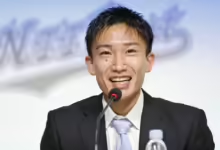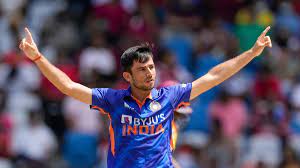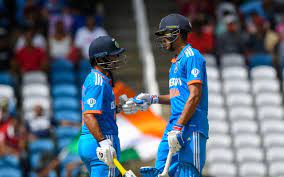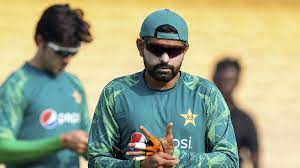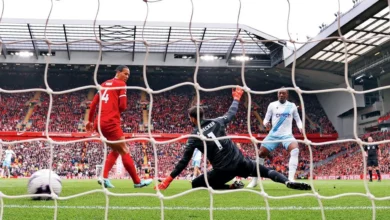Footballers call for change in response to widespread online racism and turn to AI for safety
Missing penalties in a big international football final was terrible enough for three Black players on England’s national squad. It became worse when I started receiving a barrage of racist abuse on social media.
Emojis of monkeys. a request to return home. The word “N.”
What’s even more tragic? Everyone anticipated its arrival.
Nedum Onuoha, a retired Black football player who spent 16 years playing in the top divisions of both English and American football, called it “stupid.” The question is, “But are we surprised?”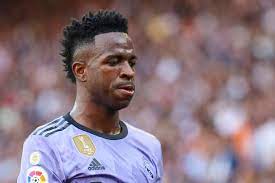
It’s the most recent iteration of racism, visible, persistently obtrusive, and available around-the-clock. It’s a chilling throwback to the monkey chants and banana-throwing of the 1980s in the age of social media.
And on platforms where anonymity is the golden ticket for bigots, it is out of control.
According to Onuoha, “every time it happens, it knocks you back and floors you.” It serves as a timely reminder that nothing is as it seems. It serves as a reminder of how some people do see you.
According to data gathered over the last three English football seasons, racism is the most common kind of abuse on social media that is reported to Kick It Out, a football anti-discrimination movement.
More than 50% of the athletes competing in the African Cup of Nations and the European Championship in 2021 received some form of discriminatory abuse in more than 400,000 posts on social media, according to a report from FIFA, the organization that oversees international football. A third or more of them were racist in nature.
The issue is that it’s so simple and there’s hardly any responsibility. Get your phone out, look up the player’s handle you wish to insult, then send a racist remark.
Bukayo Saka, Marcus Rashford, and Jadon Sancho, three Black players for England who missed penalties in a shootout loss to Italy in the 2020 European Championship final, were messaging friends on a WhatsApp group while former Premier League striker Mark Bright, who is Black and frequently experienced racial abuse inside stadiums in the 1980s, was also messaging friends at the time.
“Oh God, here we go,” we all messaged one another. Because we are aware of what is coming,” Bright told the AP. That’s what we anticipated, and here is where you ask, “What can be done about it?” once again.
The harassment has, for the most part, not discouraged Black players from utilizing social media. It is a crucial marketing tool, which creates the paradoxical situation where football players use the same sites where they are mistreated.
After their Black teammate Kingsley Coman and Kylian Mbappe’s France national team’s defeat to Argentina in the 2022 World Cup final, who has more than 12 million Twitter followers and 104 million Instagram followers combined, they were the targets of racial abuse.
Vincius Jnior, a winger for Real Madrid who has received several racist slurs, has 38 million Instagram followers and about 7 million Twitter followers.
Saka, who has more than a million Twitter followers, continues to use the platform despite harassment following England’s Euro 2020 defeat and more recently, when a message was posted on Twitter that featured an image of the Arsenal winger with his face altered and the words: “This clown has cost us the league.” Saka had missed a penalty in a crucial Premier League match minutes before the message.
Players and teams are coming up with strategies to spread awareness and limit their contact with offensive users as social media continues to fuel abuse.
GoBubble is a company that configures AI software to act as a filter to stop discriminatory comments from being seen by a social media user. Customers come from all around Europe and Australia, including the Premier League and the fourth level of English football.
In spite of the fact that technology has contributed to the problem, according to GoBubble creator Henry Platten, “tech can actually solve the problem, and this is what we are seeing as one of those pieces of the jigsaw.”
With the use of a traffic-light system, the company’s AI technology is hooked into players’ accounts and searches for offensive and possibly damaging phrases, photos, and other forms of communications that may be blocked.
This isn’t about censoring, sportswashing, or making that hazy world, according to Platten. “This is about protecting the community of fans as a whole, not just the players and their families.”
According to Platten, several of the athletes that contacted him had mental health problems that affected their performances. In fact, Liverpool was the first team in the Premier League to appoint a mental health expert charged with shielding young players from online bullying in January.
Governing bodies are also responding. A special in-tournament moderation service was provided by FIFA and the players’ union FIFPRO during the World Cup in Qatar last year to stop players and their supporters from seeing racist and other types of hate speech online. The next Women’s World Cup will include this service.
In 2021, in response to racial abuse, English football officials, including the Premier League, organized a four-day social media boycott spanning Twitter, Facebook, and Instagram. Many other English sports as well as FIFA and UEFA, the organization that oversees football in Europe, eventually adopted it.
The platforms have been criticized for taking too long to delete racist postings, block offenders’ accounts, and enhance their verification procedure to guarantee users supply proper identifying information and are prevented from opening new accounts if banned, although abuse still occurs on them.
“It needs to be regulated, and you need to be accountable,” Bright added. “This is something that everyone has been griping about for a while. Meetings with these social media companies have been scheduled by some players. They don’t appear to be taking it seriously enough, in my opinion.
So, are the major social media networks willing to change?
“No one should have to experience racist abuse, and we don’t want it on our apps,” Meta, which owns Instagram and Facebook, said in a statement to the Associated Press. We take action when we discover it, and we’ve introduced a number of initiatives to assist shield people from ever having to see it.
According to the statement, this includes “Limits,” which conceals comments and DMs from users who don’t follow you or who have only recently started following you, as well as “Hidden Words,” which filters inappropriate comments and direct messages and is enabled by default for creator accounts.
To maintain our applications a safe environment for sportsmen and spectators, Meta added, “We know that no single thing will fix abusive behavior, but we’re committed to continuing working closely with the football industry.”
When the AP requested a response, Twitter replied automatically with a feces emoji.
According to Platten, the creator of GoBubble, platforms must strike a compromise between maintaining a large user base for financial reasons and projecting an image of being strong on racism.
However, he said, “they are never going to go the full hog that we all want them to, in terms of really cracking down and solving it. There will always be a position where they may move closer to solving the problem.”
Some sports teams and individuals are using alternate channels to advertise not just their own brands but also online conduct that is more moral.
These include Striver, a user-generated multimedia portal supported by 2002 World Cup champions Gilberto Silva and Roberto Carlos of Brazil. And PixStory, a site with around 1 million members, evaluates people based on the integrity of their postings and strives to build “clean social” by placing safety above all else in a manner that major digital firms do not.
The women’s teams of Paris Saint-Germain, Juventus, and Arsenal all work with PixStory, whose creator, Appu Esthose Suresh, claims that teams and players are caught in a “Catch-22 situation.”
They want to live here because it allows them to interact with their fans, but there isn’t enough safety, according to Suresh, who spoke to the AP. “There is another option; it involves changing the business model.”
The largest shift will probably be brought about through law in the end. The Digital Services Act, which will require large tech corporations to better safeguard European customers from dangerous online material or risk being fined billions of dollars, was reached a basic agreement on by the European Union last month. The Online Safety Bill has been suggested by the British government, with possible penalties of 10% of the platforms’ annual worldwide revenue.
In the meanwhile, more people are being charged with crimes for engaging in online racist harassment. A three-year ban from all British football stadiums was imposed on the man who harassed England striker Ivan Toney in March, according to police, in what they called a “landmark ruling.”
While Onuoha appreciated these changes, he continues to keep his social media accounts locked to private.
There will be many excellent individuals who won’t be able to connect with me, but he explained that this was due to a lack of trust and confidence in allowing enough good people access to the account. “The 1% who balance the entire experience are they.”


